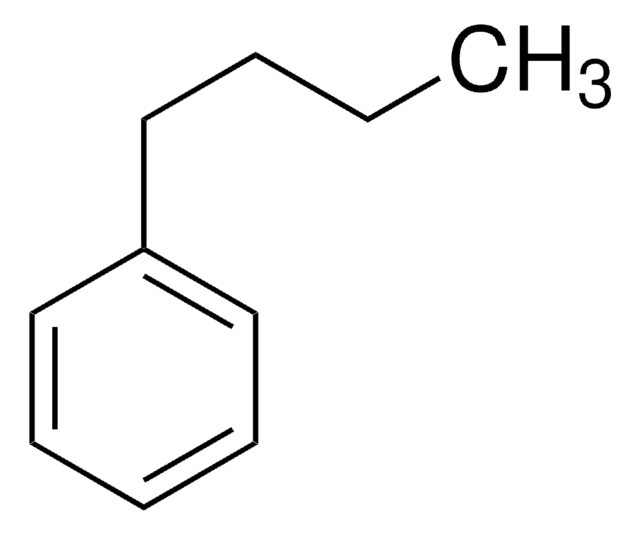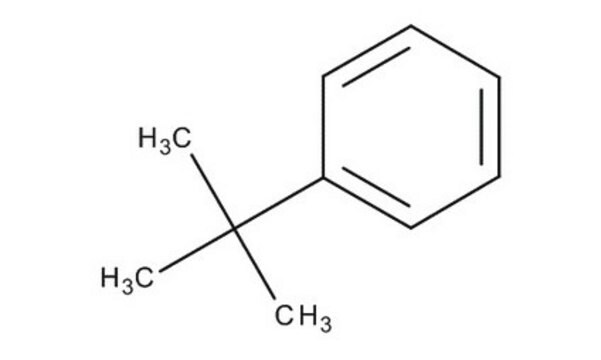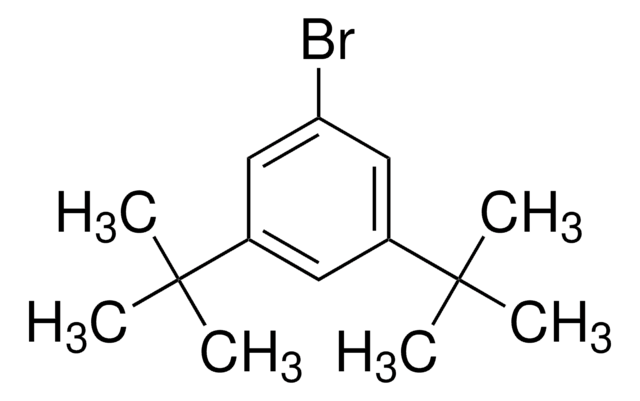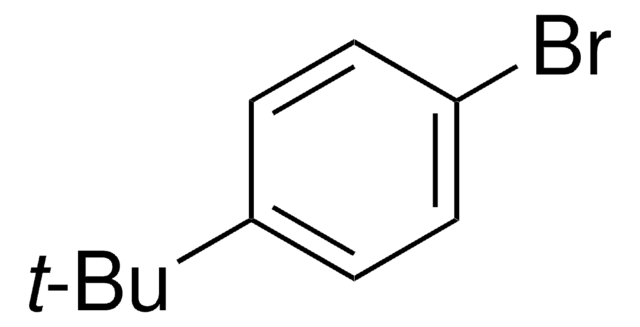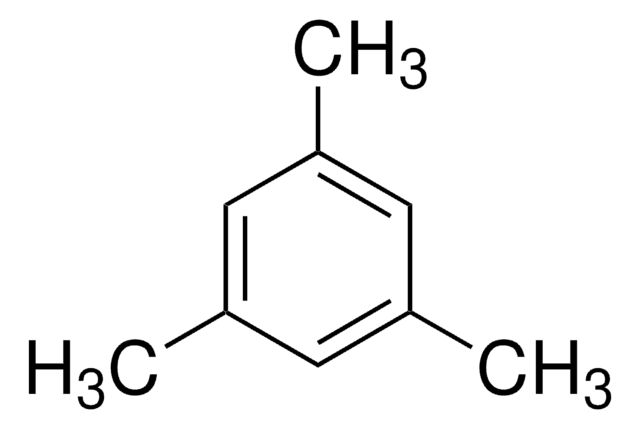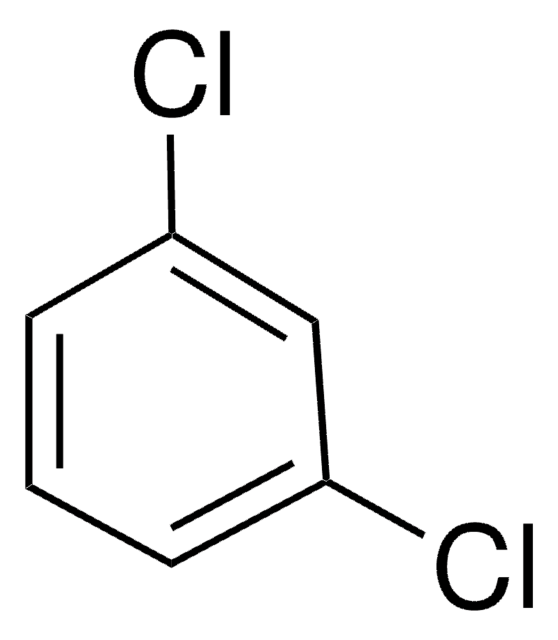B90602
tert-Butylbenzene
99%
Synonym(s):
2-Methyl-2-phenylpropane
Sign Into View Organizational & Contract Pricing
All Photos(1)
About This Item
Linear Formula:
C6H5C(CH3)3
CAS Number:
Molecular Weight:
134.22
Beilstein:
1421537
EC Number:
MDL number:
UNSPSC Code:
12352100
PubChem Substance ID:
NACRES:
NA.22
Recommended Products
vapor density
3.16 (169 °C, vs air)
Quality Level
vapor pressure
4.79 mmHg ( 37.7 °C)
Assay
99%
form
liquid
autoignition temp.
842 °F
refractive index
n20/D 1.492 (lit.)
bp
169 °C (lit.)
mp
−58 °C (lit.)
density
0.867 g/mL at 25 °C (lit.)
SMILES string
CC(C)(C)c1ccccc1
InChI
1S/C10H14/c1-10(2,3)9-7-5-4-6-8-9/h4-8H,1-3H3
InChI key
YTZKOQUCBOVLHL-UHFFFAOYSA-N
Looking for similar products? Visit Product Comparison Guide
General description
Tert-Butylbenzene, also known as 2-methyl-2-phenylpropane, is an aromatic hydrocarbon that serves as an organic building block in the synthesis of various tert-butyl derivatives. Due to its non-polar nature, it is an effective solvent in industrial processes, particularly in the formulation of coatings and adhesives.
Application
- Gas separation applications: tert-Butylbenzene is utilized in the synthesis of aromatic polyimide membranes with covalent crosslinking, enhancing their performance in gas separation processes, which is vital for industrial applications and environmental management (Lozano et al., 2022).
- Enhancement of Raman scattering: The compound serves as a substrate for metal nanoparticles in nanogap-enhanced Raman scattering studies, which is crucial for analytical chemistry, providing sensitive detection methods for various chemicals (Chen et al., 2021).
- Hyperpolarized (13)C probes: It is also pivotal in the rational design of hyperpolarized (13)C probes, enabling significant advancements in magnetic resonance imaging (MRI) techniques, which improve diagnostic imaging capabilities (Sando et al., 2018).
Signal Word
Warning
Hazard Statements
Precautionary Statements
Hazard Classifications
Flam. Liq. 3 - Skin Irrit. 2
Storage Class Code
3 - Flammable liquids
WGK
WGK 1
Flash Point(F)
116.6 °F - closed cup
Flash Point(C)
47 °C - closed cup
Personal Protective Equipment
dust mask type N95 (US), Eyeshields, Gloves
Choose from one of the most recent versions:
Already Own This Product?
Find documentation for the products that you have recently purchased in the Document Library.
Customers Also Viewed
Liquid density measurements of cumene, tert-butylbenzene, and hexadecane over wide ranges of temperature and pressure
Khasanshin et al.
Fluid Phase Equilibria, 463, 121-127 (2018)
The Orientation of Isopropyl and tert-Butyl Groups in Benzene Dialkylation
Hennion et al.
The Journal of Organic Chemistry, 17, 1102-1106 (1952)
De-tert-butylation of substituted arenes
Saleh et al.
Tetrahedron, 54, 14157-14177 (1998)
C B Castells et al.
Analytical chemistry, 71(15), 3013-3021 (1999-08-18)
In this work we explore the use of microparticulate porous zirconia coated with cellulose tris(3,5-dimethylphenyl-carbamate) (CDMPC) as a support for separation of chiral compounds by HPLC. The surface of zirconia, previously sintered but not rehydroxylated, provides a stable surface for
Salvatore Fanali et al.
Journal of separation science, 29(10), 1423-1431 (2006-08-10)
Several racemic acidic compounds of pharmaceutical and environmental interest have been separated into their enantiomers by nano-liquid chromatography (nano-LC) employing a tert-butylbenzoylated tartardiamide chiral stationary phase (CHI-TBB). CHI-TBB was packed into a fused silica capillary of 100 microm id and
Our team of scientists has experience in all areas of research including Life Science, Material Science, Chemical Synthesis, Chromatography, Analytical and many others.
Contact Technical Service
